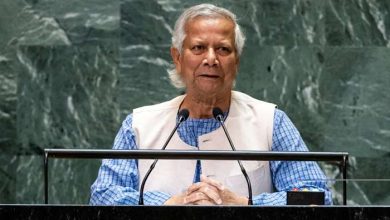India may make more troubles against China, other neighbours: Chinese scholar
 Beijing: To strongly demonstrate its anti-China and anti-Pakistan stance for inciting domestic religious and nationalist sentiment and striving to win more votes, India, led by Prime Minister Narendra Modi, may make more troubles against China and its other neighboring countries, Cheng Xizhong, Visiting Professor of Southwest University of Political Science and Law said on Saturday.
Beijing: To strongly demonstrate its anti-China and anti-Pakistan stance for inciting domestic religious and nationalist sentiment and striving to win more votes, India, led by Prime Minister Narendra Modi, may make more troubles against China and its other neighboring countries, Cheng Xizhong, Visiting Professor of Southwest University of Political Science and Law said on Saturday.
Modi, who has now been in power for the last 10 years, has announced his candidacy for a third term in the new general election in April and May this year, he said in a statement released by Asia Pacific Daily.
Prof Cheng pointed out that there are three main reasons why it is so difficult to make progress on the border issue: Firstly, India has not given up its territorial expansion ambitions. On August 5, 2019, India unilaterally amended its Constitution to revoke the disputed Kashmir’s special status.
On October 31, of that year, India officially implemented the Jammu and Kashmir Reorganization Act, announcing the establishment of Jammu and Kashmir Union Territory and the Ladakh Union Territory. On November 2, of that year, India released a new version of its political map, which detailed the borders of Jammu, Kashmir, and Ladakh.
On the map, all the disputed areas, including large areas under China’s current effective administrative jurisdiction, were directly assigned to its own territory. This is the fundamental reason for the military conflicts along the China-India border that have occurred in recent years and the difficulty for both sides to reach any solution, he added.
Secondly, India is continuously strengthening its military deployment in the border areas between China and India. Before 2019, India deployed 2 corps, 8 divisions and 37 combat brigades in the China-India border areas, with a total military strength of 215,000. In recent years, in order to implement the pushing forward strategy in the western section of the border and attempt to occupy a large area of Chinese territory, the Indian army has established a mountain strike corps in the western section.
At the same time, the Indian army has deployed a large number of advanced offensive weapons such as artillery, tanks, missiles and fighters in the forefront of the border, and carried out large-scale battlefield construction with road network as the main focus.
Thirdly, he said, Indian Prime Minister Narendra Modi and his Bharatiya Janata Party (BJP), came to power by promoting three ideologies: extreme religiosity, extreme nationalism and regional hegemonism. Modi has now been in power for two terms with a total of 10 years.
In April and May this year, India will hold the new general election and Modi has announced his candidacy for a third term.
Prof Cheng said, on June 18, 2017, there was a standoff between China and India in the Dong Lang area. On June 15, 2020, at the Galwan Valley in the western section of the China-India border, there was a fierce physical conflict between the two sides.
Since June 2020, China and India have held 21 rounds of corps commander-level talks. The current situation along the China-India border is generally stable, and both sides are maintaining effective communication through diplomatic and military channels.
China has attached great importance to the relationship between the two countries and the two militaries. In order to maintain peace and tranquility in the border area, China has been making unremitting efforts for decades.
Although both sides have been actively, deeply and constructively communicating to solve the on-site border issues of mutual concern, solutions that are acceptable to both sides have not yet been reached, he added.
Last Friday, a Chinese Foreign Ministry spokesperson stated during a briefing that India’s move to strengthen military deployment along the border with China is counter-productive to the two countries’ effort to ease the situation in border areas and is not conducive to safeguarding peace and tranquility of the border areas.








